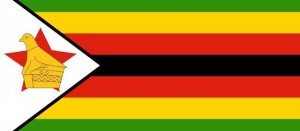- WICKNELL CHIVAYO left school at 15
- DISGRUNTLED Zimbabwe police stage uniform protest.
- MNANGAGWA wife Auxillia drops charges against nine women who boed her in Manicaland
- O.J. Simpson dies of cancer , aged 76.
- South Africa ANC is the cause of ZIMBABWE troubles claims Zimbabwe opposition politician Job Sikhala
‘ZIMBABWE’S ECONOMY FACES MASSIVE TURMOIL unless the country gets much-needed international assistance urgently’- World Bank.

‘ZIMBABWE’S ECONOMY FACES MASSIVE TURMOIL unless the country gets much-needed international assistance urgently’- World Bank.
This comes as the country is currently going through its worst economic crisis in a decade, as it battles acute shortages of foreign currency, fuel, electricity, medicines and water – which has triggered unrest among long-suffering citizens.
Meanwhile, the International Monetary Fund (IMF) has widened its estimated contraction for Zimbabwe’s economy to 7,1% by year end owing to worsening macro-economic challenges.
Previously, the IMF had predicted Zimbabwe’s economy to contract by 5,2% by year end while government recently revised its economic contraction to 6,5% from an initial 3% in its 2020 Pre-Budget Strategy Document.
The revised estimated amount is due to continued macro-economic challenges on the back of austerity measures implemented by government without corresponding social protections which has greatly reduced consumer activity.
“Data is based on IMF staff estimates of price and exchange rate developments in US dollars. IMF staff estimates of US dollar values may differ from authorities’ estimates. Real gross domestic product is in constant 2009 prices,” said IMF, in its 2019 World Economic Outlook released yesterday.
The IMF said Sub-Saharan Africa growth is expected at 3,2% in 2019 and 3,6% in 2020, slightly lower for both years than in the April 2019 World Economic Outlook due to instability in commodity prices and poor polices in the bigger economies.
At the heart of the macro-economic challenges is a declining local currency that lacks either foreign currency or market confidence backing, causing both official and parallel forex rates to rise.
As a result, businesses are constantly changing their pricing in line with those rates to maintain the value of their goods and services.
This has resulted in endless price hikes,ultimately pushing the economy into hyperinflation.
Recently, the Public Accountants and Auditors Board announced “hyperinflationary reporting” in firms crafting their financial statements.
“Our outlook for the Zimbabwean consumer continues to deteriorate. Government reforms have so far been unpopular and have had adverse effects on the consumer base. Moreover, extremely high levels of inflation are weighing on consumer purchasing power,” said American financial services firm, Fitch Solutions, in its October 2019 Africa Monitor for southern Africa.Source – Daily News – Newsday WELCOME EVERYONE: 266,080 MEMBERS, 1000 new members a day. A Quarter of a million members, thank you for the fast growth, participation and continuos encouragement to others to join the group, and engage other progressive minded people in respectful and inclusive debate focused on information dissemination in issues that directly affect the ordinary person including human rights, good governance, accountability, transparency, housing, employment, development, girl child, equality, gender, peace, climate change, polllution, youth, freedom and more issues that directly affect the ordinary person. Information dissemination empowers the readers so that they are better placed to make well informed decisions and choices such as voting. Please feel free to add and encourage others to join.
INFORMATION IS POWER!-Thank you for the support. Please email all your articles, photos and breaking news, to newzimbabwe.vision@yahoo.com ,linkedin.com/in/sibusiso-ngwenya-563a572b ‘
Twitter-@sibungwen
or whatsapp to Mr Sibusiso Ngwenya 0044 79 3 9100534 for publication on the constantly growing online groups, currently standing as follows:
1) Zimbabwe Global News 266,080Members
2) Newzimbabwevision.com website 24,135 likes
24,158 followers.
Manages Newzimbabwevision
Followed by 12,672